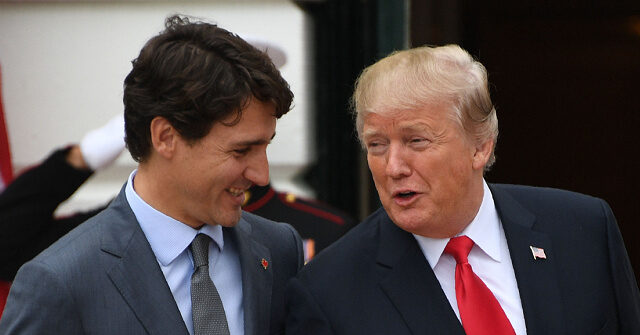In a recent series of posts on his social media platform Truth Social, President-elect Donald Trump expressed his opinions on the resignation of Canadian Finance Minister Chrystia Freeland. Trump described the event as a shocking moment for Canada and mockingly referred to the country as the “Great State of Canada.” He further commented on Freeland’s tenure, characterizing her behavior as “totally toxic” and stating that she would not be missed. This criticism reflects Trump’s long-standing contentious relationship with Canadian Prime Minister Justin Trudeau, demonstrating the ongoing friction between the two leaders and their respective nations.
Trump’s remarks were not an isolated incident but part of a larger trend in which he has mocked Trudeau’s leadership. In December, Trump referred to Trudeau as “Governor Justin Trudeau of the Great State of Canada,” hinting at a playful suggestion that Canada could consider becoming the 51st state of the U.S. during discussions about potential tariffs on Canadian goods. Such comments display Trump’s characteristic humor and tendency to blend political commentary with personal jabs, particularly directed at figures he finds less favorable in international politics.
Freeland’s resignation came after a period of escalating tensions between her and Trudeau regarding economic policies and the future direction of Canada. In a letter to Trudeau, Freeland disclosed that he had informed her he no longer wished for her to continue as finance minister, prompting her decision to resign rather than accept another position in his Cabinet. Freeland’s acknowledgment of their “odds” over the best path for the nation underscores internal conflicts within the Canadian government and reflects the challenges of leadership during turbulent economic times.
Trump’s comments come amid broader scrutiny of Trudeau’s leadership and the Liberals’ performance on economic issues, which have been increasingly criticized by political opponents and the public. As Canada grapples with significant economic challenges, including rising inflation and cost of living, Freeland’s departure signals potential shifts within the government. Concerns over the Liberals’ ability to effectively manage the economy could have implications not just for domestic policy, but also for Canada’s international relationships, particularly with its largest trading partner, the United States.
The resignation of Freeland, who was previously deputy prime minister, has prompted discussions around political stability in Canada. Her exit illustrates the precarious balance leaders must maintain in governance, especially in times of public dissatisfaction with economic performance. The notion that her departure could alter the trajectory of Canadian policy highlights the significance of individual cabinet members in shaping government direction, and how their relationships with the prime minister can impact broader government effectiveness.
In conclusion, Trump’s trolling of Trudeau and commentary on Freeland’s resignation captures a snapshot of the evolving political landscape in Canada, marked by internal strife and external pressures. His approach highlights a unique intersection of humor and critique in political discourse, while also drawing attention to the intricate dynamics of leadership within Canada amidst economic challenges. The future implications of these developments remain to be seen, as the situation continues to unfold.

